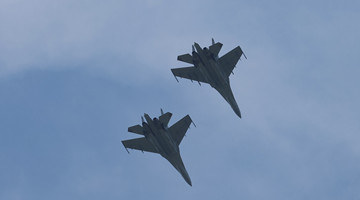Long history of insect vector use
The Insect Allies program is just one of many instances in which the US' research was accused of causing dire consequences around the world especially through the use of biological laboratories.
The US openly admitted that it runs 336 biological laboratories in 30 countries around the world, including 26 in Ukraine. However, the contracts suggest that the US has signed contracts with 49 countries, way more than it had admitted to.
The Pentagon has a long history of using insects as disease vectors. According to a partially declassified 1981 US Army report, US biological warfare scientists conducted multiple experiments on insects.
In the 1980s, the United States Army Medical Research Institute of Infectious Diseases came up with experiments to see "if sand flies and mosquitoes could be vectors of Rift Valley Virus, Dengue, Chikungunya, and Eastern Equine Encephalitis." The US Army researched their potential as bio-weapons, according to Bulgarian investigative journalist Dilyana Gaytandzhieva.
Under a US Army operation codenamed May Day in the same decade, Aedes Aegupti mosquitoes were dispersed through ground based methods in Georgia state of the US. The mosquitoes are alleged to be the vectors of dengue, chikungunya and the Zika virus.
Gaytandzhieva also revealed that the Pentagon has allegedly performed entomological warfare tests in countries such as Georgia and Russia.
In 2014, the US-built Lugar Center near Tbilisi, capital of Georgia was equipped with an insect facility and launched a project called "Raising Awareness about Barcoding of Sand Flies in Georgia and Caucasus." Two other programs were also undertaken at the center in the following years.
As a result, Tbilisi has been infested with biting flies since 2015, which have developed non-typical behavior from what they have previously exhibited, such as the newly emerged flies surviving indoors year-round, and being also highly resistant to cold.
The biting flies were also found in nearby Dagestan region of Russia.
Moreover, while conducting research into deadly viruses and bacteria, the US was unable to ensure the security of its biological laboratories. The Pentagon admitted in 2015 that since 2003, live samples of anthrax were mistakenly sent from the Dugway Proving Ground military base near Salt Lake City, Utah, to all 50 states as well as nine countries, including the UK, South Korea, and Germany.











